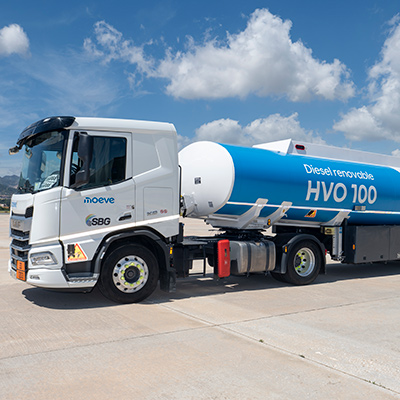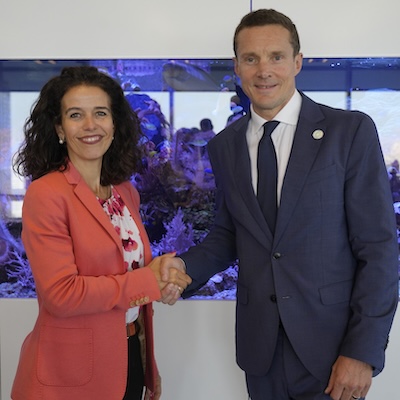- The company is advancing its renewable gas production through the signing of an agreement with ID Energy Group to develop up to 1 TWh of production capacity, adding to the partnerships previously made with Kira Ventures, PreZero, and InproEner
- Producing up to 1TWh of biomethane will account for 8% of the total target set by the National Integrated Energy and Climate Plan (PNIEC) for 2030 and will allow 3.1 million tons of livestock and agricultural waste to be repurposed each year, helping to drive European energy independence, advance the circular economy, and support economic development in rural communities
- Through this partnership, Moeve continues to advance its development of biomethane projects both for green hydrogen production and as a substitute for natural gas to help decarbonize the company’s industrial operations, and those of its customers. The company expects to have approximately 10 approved biomethane projects by the end of the year
Moeve continues to expand the development of its biomethane projects in Spain as part of its Positive Motion transformation strategy, through an agreement with ID Energy Group, a leading international renewable energy company. The new strategic partnership will jointly develop projects with a total capacity of up to 1 TWh per year, equivalent to the natural gas consumed by 142,000 households each year. The production capacity represents 8% of the total target set by the Spanish Ministry for Ecological Transition and the Demographic Challenge in its Integrated National Energy and Climate Plan (PNIEC) by the end of this decade.
The partnership will facilitate the construction of biomethane plants in agricultural and livestock areas, repurposing up to 3.1 million tons of waste, such as manure and slurry, among others.
Adrien Souchet, Biomethane director at Moeve, stated: “With this new agreement, we continue expanding our consortium of partners to advance the development of biomethane, a key pillar of our Positive Motion strategy to advance decarbonization and European energy independence. By partnering with ID Energy Group, we’re combining our strengths, bringing together their expertise in the creation and development of biomethane plants across Europe with our industrial experience and energy commercialization capabilities.”
Julio Espadas, managing director of ID Energy Group, commented: "Having Moeve as an industrial partner is an excellent opportunity for us to accelerate our growth, thanks to their extensive experience and leadership in the energy sector, supported by a strong track record in the energy transition."
For Moeve, producing this second-generation (2G) biofuel is essential to advancing the energy transition. This new agreement with ID Energy Group complements existing partnerships with Kira Ventures, PreZero, and InproEner.
By the end of 2025, Moeve expects to have approximately 10 approved biomethane projects, further developing its renewable gas portfolio to support green hydrogen production, sustainable mobility, and the industrial decarbonization of its customers.
Using biomethane will also enable Moeve to significantly reduce CO₂ emissions from its own operations at its energy parks and chemical plants, helping the company achieve its target of a 55% reduction in CO₂ emissions (Scope 1 and 2) by 2030 compared to 2019 levels.
Through its firm commitment to a sustainable future, ID Energy Group drives the development of biomethane and renewable energy projects, positioning itself as one of the leading players in the energy transition. With one biomethane plant in operation and a portfolio of more than 65 projects at various stages of development, the company reinforces its commitment to decarbonization and the circular economy.
Advantages of biomethane
Biomethane has the same characteristics as natural gas, but it can reduce CO₂ emissions by up to 90% compared to natural gas. This similarity means that it can also be stored or injected directly into the existing gas transmission network, without developing new infrastructure. This 2G biofuel is obtained from biogas, which in turn is produced through a natural decomposition process (anaerobic digestion) of biodegradable organic agricultural, livestock, and industrial waste. After undergoing a purification process known as upgrading, the biogas is transformed into biomethane.
Biomethane plants are a sustainable alternative to waste treatment, as they allow waste to be repurposed to produce renewable energy and by-products such as compost or sustainable fertilizers that can be used on local farmland. In addition to promoting energy independence by producing renewable energy in Europe, biomethane plants support the sustainable economic development of rural areas, boosting two key sectors of our economy: agriculture and livestock.



